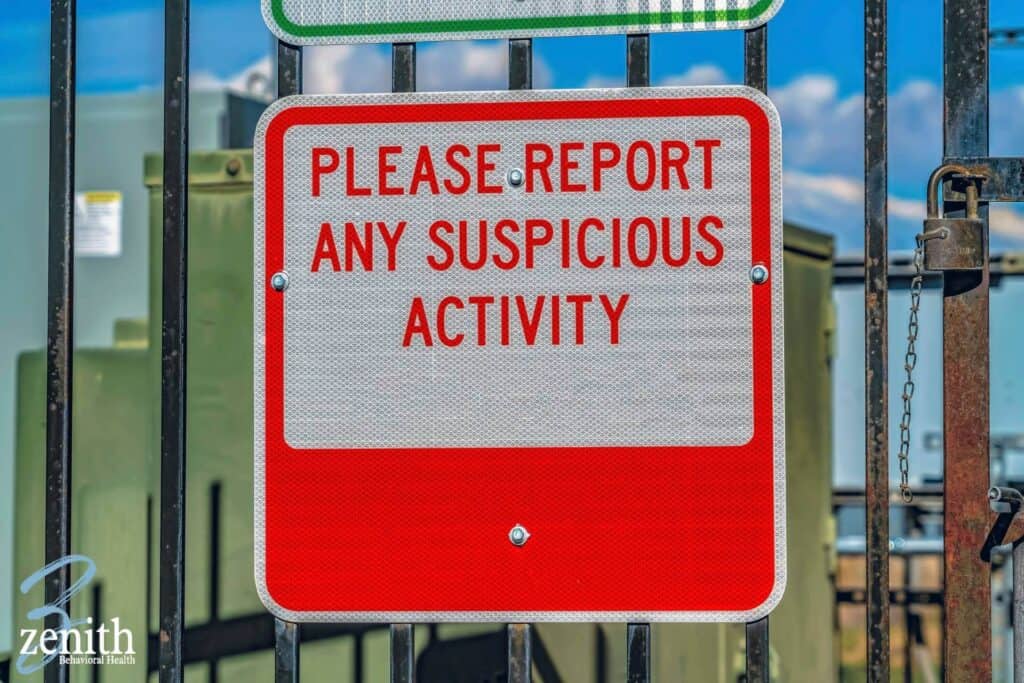The toll on mental health among sex trafficking survivors is profound. Many individuals who have endured the horrors of sex trafficking experience mental health disorders and concerns, including post-traumatic stress disorder (PTSD), poor mental health, and various mental health conditions. Addressing these mental health problems is crucial, and mental health professionals play a pivotal role in providing mental health services to survivors.
What is Human Trafficking?
Human trafficking is a harrowing and pervasive issue that affects countless individuals worldwide. It encompasses a range of exploitative practices, with sex trafficking being one of its most distressing forms. This criminal activity involves the abduction, coercion, or recruitment of vulnerable individuals, often exploiting their dire circumstances. Among human trafficking victims, sex trafficking victims are subjected to sexual exploitation, and enduring physical and emotional abuse.
Efforts to combat human trafficking are a global concern, recognized by organizations like the United Nations. International cooperation is vital in punishing traffickers and providing support to potential victims. Increased awareness, assessment of risk factors, and the existence of hotlines like the National Human Trafficking Hotline contribute to the fight against this modern-day slavery.

How to Identify Human Trafficking Victims
Identifying human trafficking victims, especially those who have been subjected to sex trafficking, is a critical step in addressing this heinous crime and providing them with the necessary support, including mental health treatment. It’s essential for both mental health professionals and the broader community to be vigilant in recognizing signs and risk factors associated with human trafficking.
One key indicator is the presence of mental health concerns among potential victims. Many survivors of sex trafficking endure sexual abuse, physical abuse, and traumatic experiences, leading to mental health disorders such as post-traumatic stress disorder (PTSD), depression, and anxiety. Poor mental health and self-esteem are common issues among these individuals, often accompanied by substance abuse and addiction disorders as a means of coping with their ordeal.
Community Roles in Identifying Human Trafficking Victims
Mental health professionals play a pivotal role in identifying and assisting trafficking victims. They should be trained to recognize the psychological effects of trafficking, including trauma bonding, suicidal ideation, and eating disorders. Establishing a therapeutic relationship with survivors is crucial in providing the mental health treatment they require to overcome their mental health conditions.
Community members and law enforcement agencies should also be educated about the signs of human trafficking. These may include runaway youth, individuals with low self-esteem, and those involved in intimate partner violence or domestic violence situations. A person’s sudden change in behavior, unexplained injuries, or reluctance to discuss their experiences may also raise suspicions.
The National Human Trafficking Hotline is a valuable resource for reporting potential cases and seeking guidance on how to assess risk and assist trafficking victims. Additionally, international efforts, such as the United Nations Convention to Punish Trafficking, aim to combat modern slavery and transnational organized crime.
In conclusion, identifying human trafficking victims, particularly sex trafficking victims, requires a multidisciplinary approach. Mental health professionals, along with the broader community, should be trained to recognize the signs of trafficking and offer mental health services to survivors who have endured severe psychological trauma. Combating human trafficking is not only a matter of public health but also a moral imperative to protect vulnerable populations from the horrors of modern-day slavery.
How to Report Suspected Human Trafficking
Reporting suspected human trafficking is a crucial step in the fight against this heinous crime. It’s important for individuals, including mental health professionals, to know how to report their concerns effectively. Here are some specific examples and steps to report suspected human trafficking:
Contact the National Human Trafficking Hotline: One of the most direct ways to report suspected human trafficking is by contacting the National Human Trafficking Hotline. This hotline operates 24/7 and provides assistance in multiple languages. You can call 1-888-373-7888 or text “HELP” or “INFO” to 233733. Trained professionals are available to receive your report and provide guidance on the next steps.
Local Law Enforcement: If you witness a situation that appears to involve human trafficking, you can contact your local law enforcement agency. In many cases, the police have specialized units or officers trained to handle human trafficking cases. For example, if you notice a suspicious massage parlor where employees seem to be controlled or coerced, you can call your local police department’s non-emergency number to report your concerns.
Online Reporting: Some organizations and government agencies offer online reporting tools for suspected human trafficking. For instance, you can visit the Department of Homeland Security’s website and use their “Blue Campaign” reporting system to submit information about potential trafficking situations you’ve encountered online or offline.
Nonprofit Organizations: Many nonprofit organizations work tirelessly to combat human trafficking. They often have dedicated hotlines or online reporting mechanisms. For instance, if you suspect that a minor is a victim of domestic minor sex trafficking, you can reach out to organizations like ECPAT-USA or Polaris Project, which specialize in assisting child victims.
Mandatory Reporting: In some professions, individuals are legally obligated to report suspected cases of human trafficking. For example, teachers, healthcare professionals, and social workers are mandated reporters in many jurisdictions. If they encounter a potential victim, they are required by law to report their suspicions to the appropriate authorities.
In all cases, when reporting suspected human trafficking, it’s essential to provide as much specific information as possible. This may include details about the location, individuals involved, descriptions of victims and traffickers, license plate numbers, and any other relevant information. Reporting responsibly and promptly can make a significant difference in helping rescue victims and bring traffickers to justice. Remember that your report may be the lifeline someone desperately needs to escape the horrors of human trafficking.

Allowing Sex Trafficking Victims to Heal on Their Own Timeline
Allowing sex trafficking victims to heal on their own timeline is a vital aspect of their recovery process. While it’s essential to provide support and resources, it’s equally important to respect their autonomy and individual needs. Here are some considerations on how to support survivors in their healing journey:
Empowerment and Choice: Recognize that survivors have experienced extreme violations of their autonomy and rights. Respecting their choices and empowering them to make decisions about their healing process is fundamental. For example, if a survivor wishes to engage in therapy, it should be their choice, and they should have agency in selecting a mental health professional who makes them feel comfortable.
Trauma-Informed Care: Professionals, including mental health practitioners, should adopt a trauma-informed approach when working with sex trafficking survivors. This means understanding the potential triggers, sensitivities, and coping mechanisms related to their traumatic experiences. It also involves creating a safe and non-judgmental space for survivors to share their feelings and experiences.
Tailored Support Plans: Each survivor’s healing journey is unique. Some may need immediate mental health treatment, while others may require time to build trust and address basic needs like housing and safety. Tailor support plans to meet their specific needs, ensuring they have access to services like mental health treatment, medical care, and legal assistance when they are ready.
Building a Support Network: Encourage survivors to build a support network of trusted individuals, whether it’s friends, family, or support groups for survivors. These connections can play a crucial role in their healing process, providing emotional support and a sense of belonging.
Long-Term Support: Recognize that the healing process for survivors of sex trafficking is ongoing and non-linear. Mental health professionals should be prepared to provide long-term support as needed, addressing mental health conditions such as post-traumatic stress disorder (PTSD), depression, and anxiety. This may involve a combination of individual and group therapy, as well as access to psychiatric care and medication when necessary.
Self-Care and Self-Compassion: Encourage survivors to practice self-care and self-compassion. Healing from sex trafficking can be incredibly challenging, and survivors may experience setbacks. It’s essential for them to know that it’s okay to prioritize their well-being and take breaks when needed.
Respect Privacy and Confidentiality: Maintain strict confidentiality and respect for survivors’ privacy. Sharing their stories or experiences without their consent can retraumatize them and undermine their healing process.
Allowing sex trafficking survivors to heal on their own timeline is a compassionate and necessary approach. It requires understanding their unique needs, respecting their autonomy, and providing tailored support. Mental health professionals, as well as friends and family, play a crucial role in creating a supportive environment that enables survivors to regain control of their lives and move toward healing and recovery at their own pace.
The Importance of Mental Health Services
Sexual abuse and traumatic experiences are common among those who have been trafficked, leading to a range of psychological trauma. It’s not uncommon for survivors to develop mental illnesses, making mental health treatments an essential part of their recovery. This is where the importance of evidence-based interventions and a therapeutic relationship with mental health professionals comes into play.
Common Mental Health Treatments
Sex trafficking victims often experience profound and complex mental health challenges as a result of their traumatic experiences. To address these issues, mental health professionals use a range of common treatments tailored to the unique needs of survivors. Here are some key mental health treatments commonly employed to support sex trafficking victims on their healing journey:
Trauma-Informed Therapy: Trauma-informed therapy is a foundational approach for treating sex trafficking survivors. Therapists use evidence-based techniques such as trauma-focused cognitive-behavioral therapy (TF-CBT) or Eye Movement Desensitization and Reprocessing (EMDR) to help survivors process and manage traumatic memories. These therapies aim to reduce the symptoms of post-traumatic stress disorder (PTSD) and improve overall mental well-being.
Individual Counseling: Individual counseling provides survivors with a safe and confidential space to explore their thoughts, feelings, and experiences. It allows survivors to work through complex emotions, address trust issues, and develop coping strategies for their mental health concerns.
Group Therapy: Group therapy can be a powerful tool for survivors, as it fosters a sense of community and belonging. Survivors can share their experiences, provide mutual support, and learn from others who have faced similar challenges. This approach can help reduce feelings of isolation and promote healing.
Mindfulness and Relaxation Techniques: Practicing mindfulness and relaxation techniques can be effective in managing anxiety and stress for survivors. Techniques such as deep breathing exercises, meditation, and progressive muscle relaxation can help survivors regain a sense of control over their emotions.
Psychiatric Medication: In some cases, survivors may benefit from psychiatric medication to manage symptoms of depression, anxiety, or other mental health conditions. Medication is typically prescribed and monitored by a psychiatrist in conjunction with therapy.
Substance Abuse Treatment: Many sex trafficking survivors struggle with substance abuse as a coping mechanism. Substance abuse treatment programs, including detoxification, counseling, and support groups, can be essential in addressing addiction disorders.
Dialectical Behavior Therapy (DBT): DBT is particularly useful for survivors dealing with emotional dysregulation and self-destructive behaviors. It focuses on developing coping skills and improving interpersonal relationships.
Holistic Approaches: Holistic approaches, such as art therapy, yoga, and animal-assisted therapy, can complement traditional therapies and help survivors connect with their emotions and experiences in non-verbal ways.
Family and Couples Therapy: In cases where family members or partners are involved, family and couples therapy can help repair and strengthen relationships, addressing any interpersonal dynamics that may contribute to the survivor’s mental health issues.
Long-Term Support: Recognizing that recovery is a journey, not a destination, mental health professionals provide long-term support. They help survivors build resilience, regain a sense of identity, and work towards a healthier future.
It’s important to note that mental illness treatment for sex trafficking victims should be highly individualized, taking into account their unique experiences and needs. The goal is to empower survivors to heal, rebuild their lives, and regain a sense of control over their mental well-being, all on their own timeline.

Residential Treatment for Human Trafficking Survivors in Arizona
Additionally, it’s important to recognize the role of family members and social support in the recovery of trafficked individuals. Many victims experience trauma bonding, which makes it challenging to break free from their captors. Therefore, residential treatment and a supportive environment can make a significant difference in their journey towards healing.
Overcoming Substance Abuse in Human Trafficking Victims
Survivors of domestic sex trafficking, including both male and female survivors, often grapple with issues related to self-esteem and emotional problems. Substance misuse is also frequently intertwined with their experiences, as traffickers often use drugs to exert control over their victims. As a result, addressing addiction disorders is a crucial component of comprehensive care.
Zenith Behavioral Health recognizes the unique needs of these survivors and offers evidence-based interventions that are sensitive to their trauma. Here are some key components of addressing substance misuse in human trafficking victims:
Individualized Treatment Plans: Zenith recognizes that each survivor’s journey is unique. Therefore, they create individualized treatment plans tailored to the survivor’s specific needs and circumstances. These plans may include counseling, medication-assisted treatment, or other evidence-based therapies.
Crisis Intervention: For survivors in immediate crisis, Zenith Behavioral Health offers crisis intervention services. This includes access to 24/7 support to ensure that survivors receive help when they need it most.
Family and Supportive Services: Recognizing the importance of a strong support network, Zenith Behavioral Health involves family members and loved ones in the recovery process whenever possible. This approach helps survivors rebuild relationships and find stability.
Aftercare and Relapse Prevention: Zenith Behavioral Health is committed to long-term recovery. They provide aftercare support to help survivors maintain their sobriety and prevent relapse, recognizing that recovery is an ongoing journey.
By addressing substance use in a trauma-informed and survivor-centered manner, organizations like Zenith Behavioral Health in Phoenix, Arizona, empower human trafficking survivors to heal, reclaim their lives, and overcome the challenges that substance abuse has posed on their path to recovery. This comprehensive approach ensures that survivors receive the specialized care they need to regain control of their well-being and achieve lasting sobriety.

Begin Healing at Zenith Behavioral Health in Phoenix, Arizona
Beginning the journey of healing by entering our treatment facility is the first step towards reclaiming one’s life, and Zenith Behavioral Health in Phoenix, Arizona, is a beacon of hope for survivors seeking the support they need. Survivors of sex trafficking often endure unimaginable trauma, making it essential to find a safe and empathetic environment to start the healing process.
At Zenith Behavioral Health, survivors are met with trauma-informed care that recognizes the profound effects of their experiences. The therapists and counselors here create a nurturing space where survivors can share their stories and emotions without fear of judgment. This crucial first step allows survivors to start rebuilding trust, not only in themselves but also in the therapeutic process.
The healing journey at Zenith is highly individualized, with tailored treatment plans designed to meet the unique needs of each survivor. Whether addressing mental concerns, addiction recovery, or both, the comprehensive approach taken by Zenith Behavioral Health helps survivors regain control over their lives and rediscover their strength. By offering a blend of evidence-based therapies, holistic techniques, and ongoing support, Zenith equips survivors with the tools and resources necessary to heal, grow, and embrace a brighter future. Call us today at (602) 847-9887 to get started, we are available 24/7, 7 days a week.

